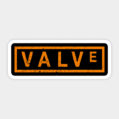USD$680m (£523m) Spent in Epic Games Store; Valve Index Sold Out Globally
by Mathew Broughton on 15th Jan 2020 in News

TheGamingEconomy Daily Digest brings you the trending business stories in gaming. In today’s edition: USD$680m (£523m) spent in Epic Games Store; Valve Index sold out globally; and Asian gaming market to generate over USD$65bn (£50bn) in 2020.
USD$680m (£523m) spent in Epic Games Store
Since launching in December 2018, player spending on Epic Games Store has reached USD$680m (£523m), with 108 million PC having used the platform. A total of 36% of this revenue, USD$251m (£193m), was generated from third-party titles, although this figure excludes funding from Epic to developers in return for platform exclusivity. Of the players actively using the platform in December 2019, the largest proportion (17.24%) were located in the US, with Russia (10.15%) and China (8.36%) the countries with the next highest share of monthly active users.
While Epic Games store has been praised by certain publishers for its drive in promoting a publisher:store revenue split of 88:12 rather than the 70:30 revenue agreement used by other storefronts, it has also been criticised by consumers for aggressively stocking the platform with exclusive titles.
Speaking to GameDaily.biz, Epic CEO Tim Sweeney said, "Exclusives have been critical in gaining momentum in the presence of a competitor that began 2019 with more than 90% market share. Securing exclusives for Epic means we can significantly assist developers with product funding and invest in marketing and awareness knowing that these efforts bring in new customers to our store, rather than just sending more business to the incumbent."
Valve Index sold out globally

The Valve Index VR headset has sold out in 30 out of the 31 countries it is officially sold in, with headset units now only available to purchase in Japan. Demand for the device has been driven by the upcoming made-for-VR title Half-Life: Alyx, also by Valve, which is due to launch in March this year. Having previously sold out in the US, Canada, and Italy, in November last year, the latest lack of availability suggests strong consumer confidence in VR, while raising concerns about Valve's ability to ship the device in sufficient time to keep up with demand.
In a statement to Road to VR, a Valve spokesperson said, “We are working hard to build more units and meet the high demand. We are targeting to be back in stock before Half-Life: Alyx ships.”
Asian gaming market to generate over USD$65bn (£50bn) in 2020

The Asian gaming market will generate over USD$65bn (£50bn) in 2020, with over 1.5 billion players in the region, according to estimates released by Niko Partners. Of this figure, USD$36bn (£27.7bn) can be attributed to China, with further regulatory disruptions, such as a freeze on the release of new titles and guidelines limiting time and money spent on games by minors, deemed "unlikely" to take place over the remainder of 2020. Aside from major markets such as China, Japan, and South Korea, Niko Partners predicts that Thailand will become the first country in the Southeast Asia (SEA) region to exceed USD$1bn (£770m) in gaming revenue, with global firms already announcing intentions to move production assets to SEA over the course of the year.
A number of factors have been cited as driving the strong growth in Asia through 2020. Firstly, the shift in mobile esports from high-profile spectator events to open local tournaments is predicted to drive greater adoption in countries which have been traditionally skeptical of PC and console-based esports. Secondly, Asian game exports are expected to grow significantly, driven by firms such as Tencent and NetEase gaining popularity in North America. Financial support from governments within the region, resumed growth of the PC market, and the continued rise of the number of female gamers are also expected to contribute to the health of the Asian gaming market.







Follow TheGamingEconomy